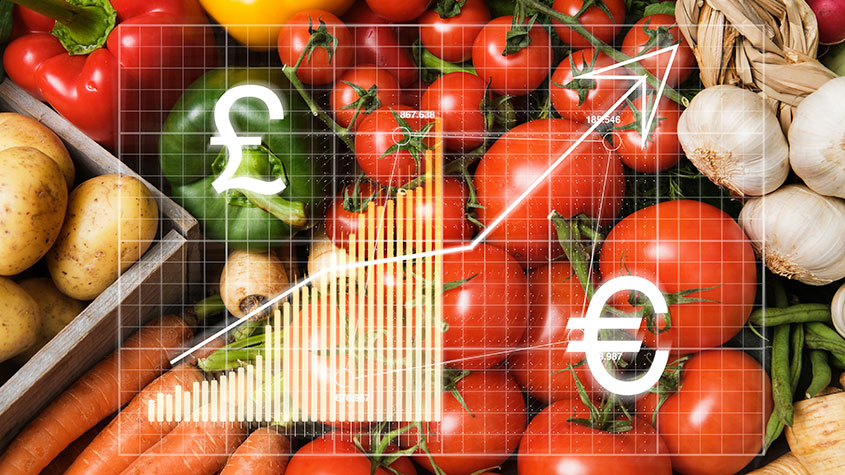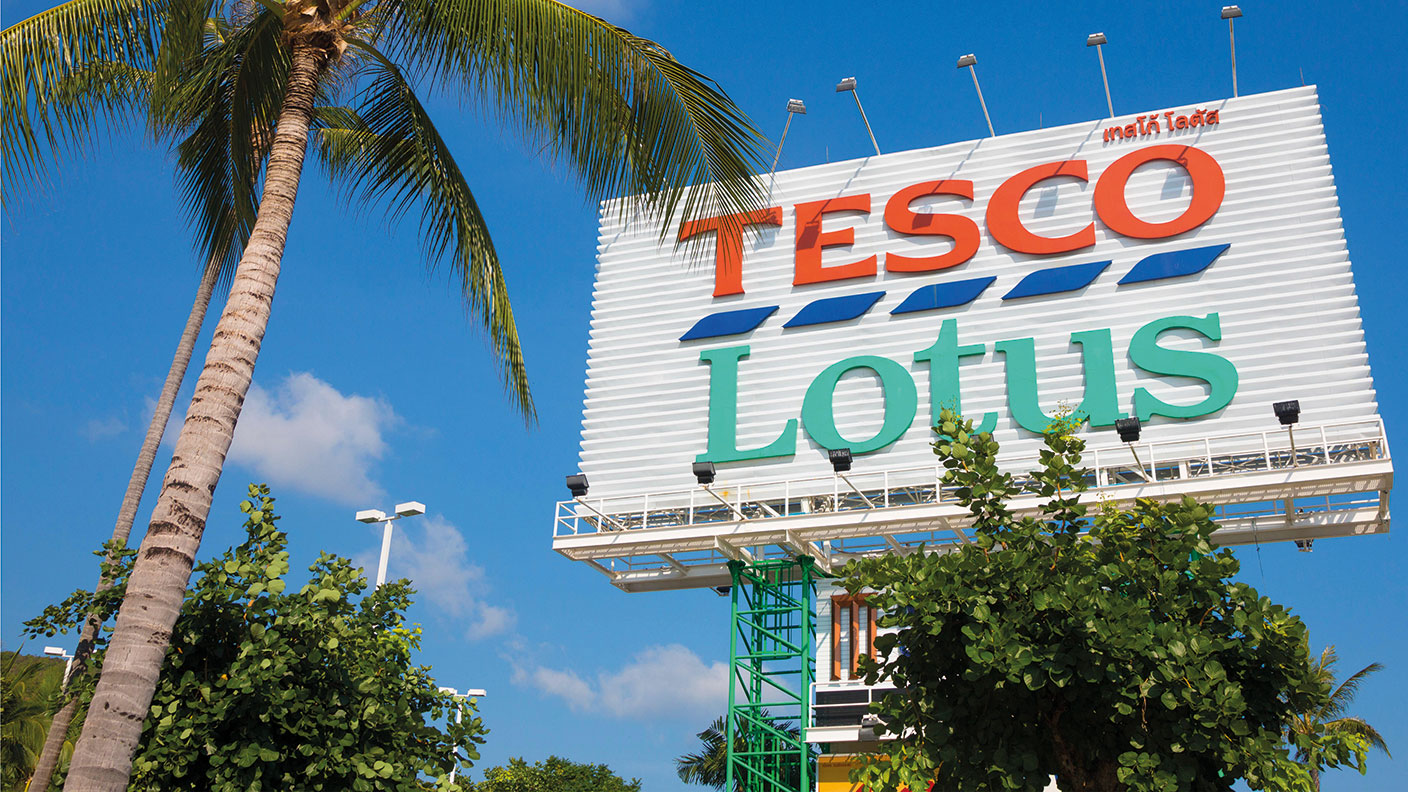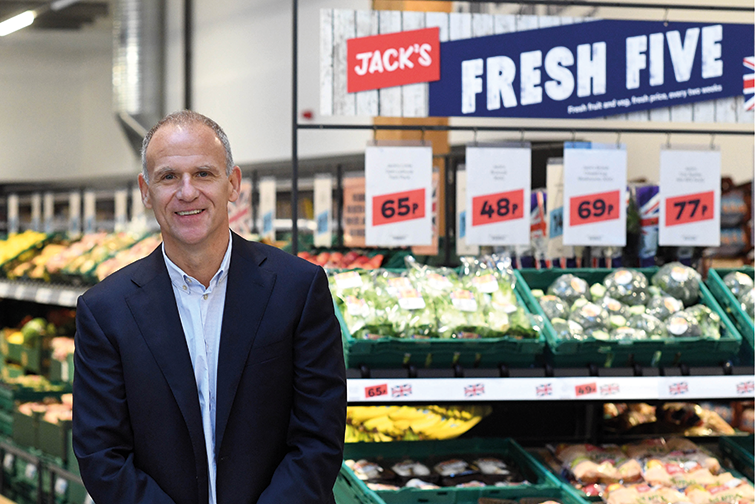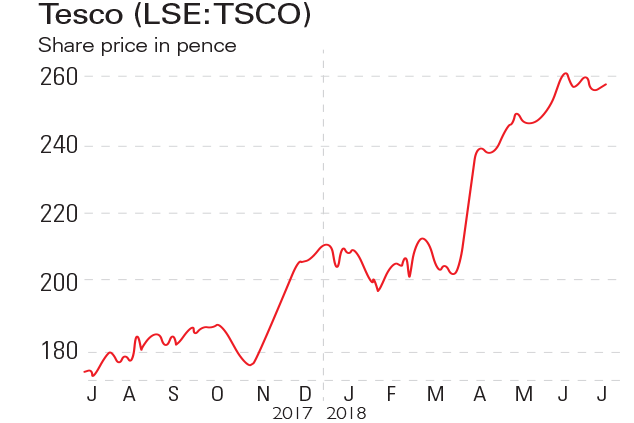Should you invest in Tesco?
Ed Bowsher asks if the appointment of Dave Lewis as its new CEO means you should go out and buy Tesco shares.

Get the latest financial news, insights and expert analysis from our award-winning MoneyWeek team, to help you understand what really matters when it comes to your finances.
You are now subscribed
Your newsletter sign-up was successful
Want to add more newsletters?

Twice daily
MoneyWeek
Get the latest financial news, insights and expert analysis from our award-winning MoneyWeek team, to help you understand what really matters when it comes to your finances.

Four times a week
Look After My Bills
Sign up to our free money-saving newsletter, filled with the latest news and expert advice to help you find the best tips and deals for managing your bills. Start saving today!
After years of poor performance, Tescos board decided to shake things up last weekend. The CEO got the chop and was replaced by a Unilever executive called Dave Lewis.Lewis has an excellent reputation so he may be able to turn Tesco around. So does that mean that now is good time to buy shares in the supermarket?
Transcript
Now, as you probably also know, Tesco share price has been performing pretty badly too. At the end of 2007, the share price was £4.77. Right now, this morning it's £2.75.
So with a new CEO coming in, and a low share price, you might think, this is the time to slip in quickly, do a bit of bargain hunting and buy some Tesco shares on the cheap. And there definitely are some good arguments for buying Tesco shares now.
MoneyWeek
Subscribe to MoneyWeek today and get your first six magazine issues absolutely FREE

Sign up to Money Morning
Don't miss the latest investment and personal finances news, market analysis, plus money-saving tips with our free twice-daily newsletter
Don't miss the latest investment and personal finances news, market analysis, plus money-saving tips with our free twice-daily newsletter
For starters, in spite of all Tesco's problems it still has a big network of stores, and it has 28% market share in the grocery market. And if you look at some of the investment metrics, some of the ratios, it's on a price earnings ratioof 11, and it's on a dividend yieldof 5%. So that price earnings ratio, all other things being equal, 11 is low.
And what we're doing here is comparing the share price with profitability, and Tesco looks attractive on that basis. And the same goes with the dividend;you're getting a good return, if you invest at £2.75. And then the final buy-point for Tesco, is it's got a strong online retail business, which is growing pretty quickly.
And actually one of my colleagues, Bengt Saelensminde, thinks you should buy into Tesco now.And one of the reasons, is he thinks the online business has the potential to become the UK's Amazon, if you like.
Now as I said, they're all good arguments for buying Tesco shares, but personally I'm not going to invest, I think the sell arguments are even stronger. I think the really crucial point here is that Tesco made a big mistake in its strategy.
In the 1990s and early 2000s. It decided the future was big out-of-town hypermarkets. It built them all over the UK, we all know them, I'm sure you've been to at least one of these stores many times.
And 15 years ago the strategy did make sense. The idea was you drive every week, or couple of weeks, to one of these big Tesco stores, you'd stock up on all your food, and then every so often you'd buy some other stuff, whether that be clothes, fridges, TVs, DVD players, whatever. And that was a formula that did make Tesco money for at least a while, and it was a good case for believing it would carry on working.
But the problem is, we started buying a lot of those extra things, things like clothes and the kitchen appliances, we started buying those things online. And even with food, we're shifting more towards the convenience stores and the smaller shops that are nearer our homes. So that meant that these big out-of-town hypermarkets are becoming white elephants. They're not giving Tesco a good return on their investment. And you can measure this using a metric called return on capital employed.
Now, if you want to find out more about that ratio, I looked at it in more detail in a video called What is return on capital employed?Basically, it's a measure that looks at how much return a company gets on any investment it makes. And right now Tesco has a 9% return.
All other things being equal, that's too low. You'd expect supermarkets to have relatively low returns anyway, but 9% is just too low. And the fact is that even in the good times, Tesco's returns on capital were too low. People didn't really focus on that number, because what was happening was Tesco kept opening new stores, new stores, new stores, that meant revenue was growing, and profits were growing, and investors said, "Well, that looks great. I'm not bothered about the returns, let's just carry on buying more shares".
But now the growth has stopped, and we're now seeing all the problems coming through. And Tesco's hidden problems are hidden no more.
Another big issue for Tesco is the competition has got much stronger than 15 years ago. It seems it's got its act together, and we've also seen the rise at the bottom end of the hard discounters - people like Aldi and Lidl. And at the top end you've got people like Waitrose and Marks & Spencer, who have got stronger and hit some of Tesco's more luxury sales at the top.
Tesco is being squeezed from both ends of the market, and that's hurting it badly. And that's one of the reasons the market share has fallen from 31% to 28%.
So what can Tesco do?
Well one obvious thing to do is to cut its profit margin. One of Tesco's strengths is that it does have a high profit margin for a food retailer 6%. But with the competition coming from Aldi and Lidl, it can't sustain that kind of margin anymore, so its inevitably going to cut the margin, which will hopefully boost sales, but it probably won't boost sales enough to ensure that profits overall start rising. If you cut the margin, profits fall. OK, you get higher sales, but profits won't rise enough to offset the falling margin that you had to cut to fight off the falling discounters.
So as I said at the beginning, there are good arguments in favour of buying Tesco and against buying Tesco, but for me when you look at the whole picture, the case is clearly a no' for me.
I hope I've helped you make your own decision on this, and I hope whatever decision you make, it turns out right. I'll be back with another video soon, so until then, good luck with your investing.
Get the latest financial news, insights and expert analysis from our award-winning MoneyWeek team, to help you understand what really matters when it comes to your finances.
Ed has been a private investor since the mid-90s and has worked as a financial journalist since 2000. He's been employed by several investment websites including Citywire, breakingviews and The Motley Fool, where he was UK editor.
Ed mainly invests in technology shares, pharmaceuticals and smaller companies. He's also a big fan of investment trusts.
Away from work, Ed is a keen theatre goer and loves all things Canadian.
Follow Ed on Twitter
-
 Should you buy an active ETF?
Should you buy an active ETF?ETFs are often mischaracterised as passive products, but they can be a convenient way to add active management to your portfolio
By Dan McEvoy Published
-
 Power up your pension before 5 April – easy ways to save before the tax year end
Power up your pension before 5 April – easy ways to save before the tax year endWith the end of the tax year looming, pension savers currently have a window to review and maximise what’s going into their retirement funds – we look at how
By Laura Miller Published
-
 How to profit from rising food prices: which stocks should you invest in?
How to profit from rising food prices: which stocks should you invest in?Tips Food prices are rising – we look at the stocks to avoid and the one to invest in this sector.
By Bruce Packard Published
-
 Tesco looks well-placed to ride out the cost of living crisis – investors take note
Tesco looks well-placed to ride out the cost of living crisis – investors take noteAnalysis Surging inflation is bad news for retailers. But supermarket giant Tesco looks better placed to cope than most, says Rupert Hargreaves.
By Rupert Hargreaves Published
-
 Tesco sells its retail subsidiary in Thailand and Malaysia for £8bn
Tesco sells its retail subsidiary in Thailand and Malaysia for £8bnNews Tesco has agreed to sell its southeast Asian operations to Thai conglomerate Charoen Pokphand for £8.2bn in cash.
By Dr Matthew Partridge Published
-
 Tesco should keep its Asian assets
Tesco should keep its Asian assetsOpinion The £7bn that Tesco could get for its Tesco Lotus business in Asia looks enticing. But holding on to it would be smarter, says Matthew Lynn.
By Matthew Lynn Published
-
 Tesco wields the axe
Tesco wields the axeFeatures Britain’s biggest supermarket is cutting back on staff and fresh food. Will the move prove counterproductive? Matthew Partridge reports.
By Dr Matthew Partridge Published
-
 If you'd invested in: Tesco and Associated British Foods
If you'd invested in: Tesco and Associated British FoodsFeatures Tesco has seen its market value rise almost 50% in a year, while AB Foods has seen shares slide despite a rise in profits.
By Alice Gråhns Published
-
 What's behind Tesco’s alliance with Carrefour?
What's behind Tesco’s alliance with Carrefour?Features Tesco is clubbing together with French rival Carrefour to bulk buy own-label goods in an effort to cut costs. Will it succeed? Ben Judge reports.
By Ben Judge Published
-
 Lessons from Tesco’s turnaround
Lessons from Tesco’s turnaroundOpinion Retailers have it tough, but Tesco has shown that it’s still possible to thrive, says Matthew Lynn.
By Matthew Lynn Published
